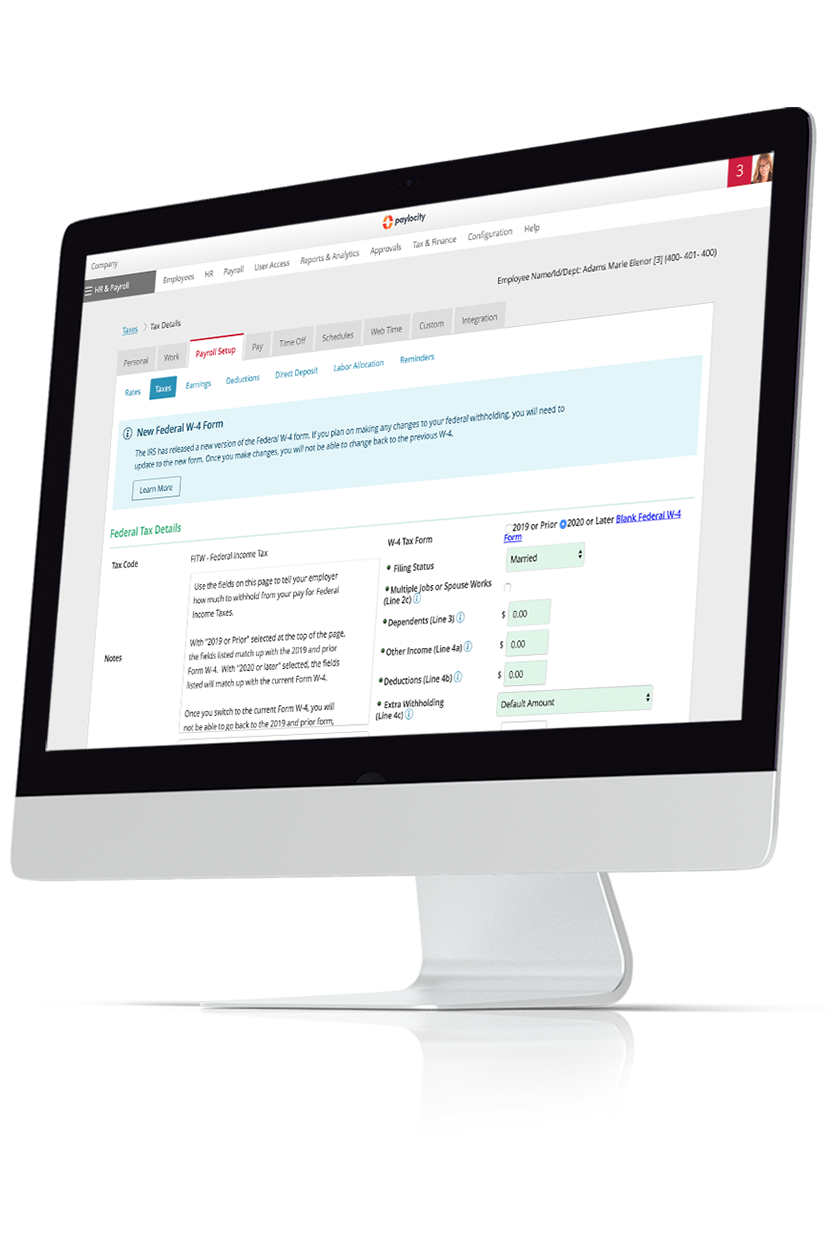Texas Payroll Tax Facts
January 09, 2025
Having to comply with unique state taxes and wage laws can make processing payroll doubly daunting. Here’s everything you need to know about these rates and laws for the state of Texas.

The Lone Star State uses the same minimum wage rate required by the federal government, and there are currently no local minimum wage rates for any of its cities or counties.
When it comes to processing payroll, Texas-based organizations must handle the following taxes in addition to those required by the federal government:
The below information was last updated January 9, 2025. It is not intended as legal or tax advice.
Texas Payroll Tax Rates
Texas State Income Tax (SIT)
Texas is one of the few states that doesn't impose or collect a personal income tax.
Texas State Unemployment Insurance (SUI)
SUI provides unemployment benefits to eligible workers who are unemployed through no fault of their own (as determined by state law) and meet the state’s eligibility requirements. However, in Texas, any employer with four or fewer employees may not be liable for this tax, so you must contact the state directly to verify your liability.
For employers who are liable, the overall SUI tax rate is based on the sum of five components:
- General Tax Rate (GTR)
- Replenishment Tax Rate (RTR)
- Obligation Assessment Rate (OA)
- Deficit Tax Rate (DTR)
- Employment Training Investment Assessment (ETIA)
|
Texas SUI Tax Details |
|
|
Taxable Wage Base |
$9,000 |
|
Employee Subject to Tax |
No |
|
Rates for Experienced Employers |
0.29% – 6.29% |
|
Rates for New Employers |
2.7% |
|
Effective Period |
Calendar Year |
|
Voluntary Contributions Allowed |
Yes; due by 60th day after date (annual experience rate notice is mailed to employer) |
|
GTR |
(Three years of chargebacks ÷ three years of taxable wages) × 1.21% |
|
RTR |
0.15% |
|
OA |
0.0% |
|
DTR |
0.0% |
|
ETIA |
0.1% |
Texas State Disability Insurance (SDI)
SDI benefits are normally funded by employees through mandatory payroll deductions from each paycheck. Texas, however, doesn't require employers to collect an SDI tax, though employers can voluntarily opt to purchase a DI policy to limit legal liability.
Texas Paid Sick Leave (PSL) Tax
The state of Texas doesn’t require employers to collect PSL taxes, nor does the state have a program providing such leave to employees.
Texas Paid Family and Medical Leave (PFML) Tax
The state of Texas doesn’t require employers to collect PFML taxes, nor does the state have a program providing such leave to employees.
Miscellaneous Texas Tax Information
Texas Reciprocal Agreement(s)
Reciprocal agreements are when workers who live and work in different states are only required to pay taxes to the state where they live. Texas currently has no reciprocal agreements with any other states.
This doesn’t mean, however, that interstate workers living in Texas pay double. It’s federally illegal for two states to tax the same income. In most cases, the employee’s work state will credit or refund them at tax time based on the taxes they owe their home state. If the tax rates differ, the employee must cover the difference.
Texas Minimum Wage Rates
|
Wage Type |
Texas Rates |
Federal Rates |
|
Minimum Wage |
$7.25 |
$7.25 |
|
Tipped Minimum Wage |
$2.13 |
$2.13 |
|
Actual Tip Credit |
$5.12 |
$5.12 |
Paying Payroll Taxes in Texas
Texas Payroll Tax Due Dates
All liable employers in Texas must remit SUI taxes to the state quarterly. Specifically, payments are due by the last day of the month following each quarter's end unless that date falls on a weekend or legal holiday. In such cases, the submission deadline becomes the next business day.
| Quarter | Due Date |
| Q1 (Jan, Feb, Mar) | April 30 |
| Q2 (Apr, May, June) | July 31 |
| Q3 (July, Aug, Sept) | October 31 |
| Q4 (Oct, Nov, Dec) | January 31 |
Texas Employer Registration
The Texas Workforce Commission can help with your state-based employer registration, including best practices, account numbers, and unemployment information.
|
Registration Details |
Texas Workforce Commission |
|
Phone |
(512) 463-2731 |
|
Online Registration |
TWC Unemployment Tax Registration |
|
Registration Instructions |
Account numbers will be issued during online registration or 2-3 weeks via mail. |
|
Employer Self-Service Login |
How to Pay Payroll Taxes in Texas
Generally, Texas employment taxes must be paid electronically on the state’s Unemployment Tax Services (UTS) system via one of the following methods:
- Automated Clearing House (ACH) transactions
- Electronic Fund Transfers (EFTs)
- Credit Cards
The only exception to this requirement is for employers with an approved hardship waiver, allowing them to submit payments via mail.
Employers without a waiver who fail to submit payments electronically are subject to civil penalties under sections 213.023 and 213.024 of the state’s unemployment compensation act. Contact the local tax office for more information about obtaining a hardship waiver.
Additional Texas Payroll Tax Resources
- IRS Texas Small Business and Self-Employed Page
- Texas Workforce Commission Tax Rates Page
- Secretary of State Employer and Tax Information Page
This information is provided as a courtesy and may be updated at any time. It is not intended as legal or tax guidance. If you have questions or concerns, we encourage you to seek the advice of a qualified CPA, tax attorney, or advisor.

Get Taxes Done Right, Without the Stress
We know there's a lot that goes into preparing and filing payroll tax forms. Save time and get support from our expert team. As a Registered Reporting Agent with the IRS, we can help prepare and file all the necessary forms you need to remain compliant - even in the face of changing legislation. Learn more here.